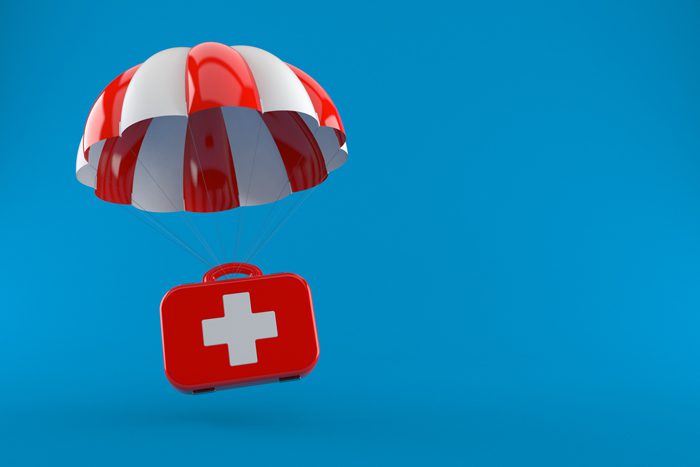 Naloxone, sold under the brand name Narcan, is a life-saving rescue medication that can reverse or temporarily stop the effects of an opioid overdose.
Naloxone, sold under the brand name Narcan, is a life-saving rescue medication that can reverse or temporarily stop the effects of an opioid overdose.
In addition to the brand name Narcan, it is also available under the names Evzio and Narcan Nasal Spray. This medication can partially or completely reverse respiratory depression caused by natural or synthetic opioids.
What Is Naloxone?
When a person overdoses on an opioid, the administration of an opioid antagonist, such as Naloxone, counteracts the life-threatening effects of the drug which causes depression of the respiratory system and the central nervous system causing their breathing to slow or stop making it very hard to wake them. The antidote medication allows the person to breathe normally, and their return to normal respiration occurs very quickly.
How Does Naloxone Work to Stop an Overdose?
Naloxone works by moving the drug’s opioids out of the opioid receptors, the mu-receptors, in the brain. It blocks the opioids by attaching itself to those receptors. When the opioids are stopped from binding to receptors, dopamine does not flood the brain.
After the medication is administered, the blocking effect of the antidote begins in 2-5 minutes. It continues to keep them blocked for 30 to 90 minutes.
What Drugs Does Naloxone Reverse?
Naloxone is only intended to be given to people that have overdosed on opioids. This class of drugs includes heroin and prescription pain pills such as Oxycodone, Morphine, Codeine, Vicodin, OxyContin, and Demerol.
Other prescription pain relievers include:
- Fentanyl
- Methadone
- Dilaudid
- Lorcet
- Norco
- Lorcet
This is not a complete list of prescription opioids. However, these are the ones that are commonly abused and become addictive.
What Drugs Are Not Reversed by Naloxone?
Since Naloxone is an opioid antagonist, it only works on opioids. If a person overdoses on any other type of drug, Naloxone will not reverse the effects of the substance.
If a person were to mix drugs, for example, Xanax (a benzodiazepine) and Oxycodone (an opioid), the Naloxone antidote would only be effective in reversing the effects of the opioid.
The following are some examples of the types of drugs that Naloxone will not reverse:
- Benzodiazepines commonly referred to as benzos, including diazepam, alprazolam, and midazolam
- Antihistamines such as pheniramine, fexofenadine, and phenergan
- Stimulants such as amphetamines, cocaine, and methamphetamines
- Sedatives such as phenobarbital, clonazepam, and estazolam
- Alcohol
How Is Naloxone Administered?
According to the National Institute on Drug Abuse, there are three methods that are FDA approved to administer the opioid antidote.
- Prepackaged Narcan Nasal Spray is a prefilled device that is needle-free. There is no assembly required. The medication is sprayed into one nostril while the person is lying on their back. The nasal spray package contains two doses in case repeat dosing is needed. The Harm Reduction Coalition website has detailed instructions and a chart that shows how to administer the Narcan Nasal Spray.
- Evzio is used to quickly inject naloxone into the thigh. It is a prefilled auto-injection device, that once activated provides verbal instructions describing how to give the opioid overdose antidote. The package of this naloxone medication also contains two doses to allow for a repeat dose if it is needed. The Harm Reduction Coalition website also gives detailed instructions with a picture on how to administer the injection.
- Injectable naloxone requires professional training to administer. There are many different generic brands of this type of antidote. This type of opioid overdose antidote is commonly used by emergency room doctors, paramedics, law enforcement officers, and first responders that have been specially trained.
Several Important Things to Know About Naloxone
The following are several additional things to know about Naloxone:
- A person cannot overdose on Naloxone. However, if a large dose of the medication is given to an individual that has taken opioids, they may experience withdrawal symptoms.
- Naloxone cannot make a person high. If a person is not using opioids and is given an injection of the rescue medication, it would feel the same as an injection of water.
- A person cannot develop tolerance to Naloxone. Regardless of how many times they have used it in the past, it can be used in every opioid overdose situation.
- Patients, family members, and caregivers can be shown how to administer Naloxone by a doctor or pharmacist.
An article in USA Today by M. Lowenstein, M.D. tells how to get the opioid antidote Naloxone. The article states that according to the drugstore firm CVS, there are 41 states that have legalized the sale of Naloxone without a prescription.
Getting Help for Opioid Addiction
Naloxone saves lives, but it is not a substitute for treatment. Without detox and counseling, someone who is addicted to opioids remains at risk for a subsequent overdose.
Great Oaks Recovery Center in Egypt, Texas, provides evidence-based treatment for opioid addiction. Using a combination of holistic and traditional therapies, our staff will work with you to acquire the tools you need to live a clean and sober life.


